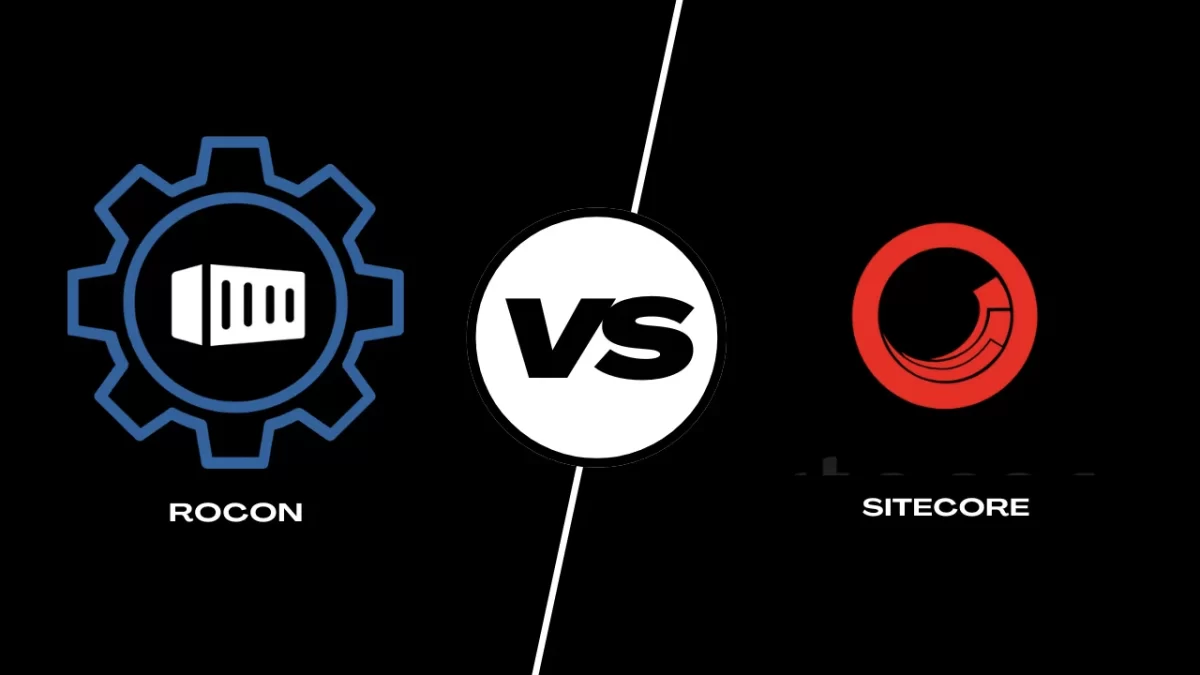If you’re trying to decide between Sitecore vs WordPress, you’re likely in the middle of building (or rebuilding) a website and want to make sure you’re choosing the right content management system (CMS). And let’s be honest—it’s a big decision. Your CMS influences everything from site speed and scalability to marketing capabilities and ongoing maintenance.
While Sitecore and WordPress are both powerful platforms, they cater to very different types of users. One is a heavyweight enterprise-grade solution built for large organizations with complex digital needs. The other powers over 40% of the entire internet and is known for its flexibility, user-friendliness, and vast plugin ecosystem.
So which is better? The short answer: it depends on your goals, team, and budget. Let’s dive deeper into the Sitecore vs WordPress debate to help you make a smarter, well-informed decision.
What is Sitecore?
Sitecore is a proprietary, enterprise-level digital experience platform (DXP). It’s built on Microsoft’s .NET framework and offers not just a CMS, but also integrated marketing, analytics, personalization, and eCommerce capabilities—all within one ecosystem.
In other words, Sitecore isn’t just about managing content. It’s designed to create highly personalized, omnichannel customer experiences—ideal for large enterprises like banks, healthcare providers, and global brands.
What is WordPress?
WordPress, on the other hand, is an open-source CMS that started as a blogging platform but has since evolved into a full-scale content management system that can power anything from personal blogs to massive eCommerce stores.
Its biggest strengths are ease of use, flexibility, and community support. With over 55,000+ plugins and thousands of themes, you can mold WordPress to do just about anything—with minimal development experience required.
Sitecore vs WordPress: Feature-by-Feature Comparison
Let’s compare these two platforms based on what really matters to businesses and developers.
1. Ease of Use
- WordPress is beginner-friendly. The dashboard is intuitive, and non-technical users can manage content, install plugins, and update themes without needing a developer.
- Sitecore, in contrast, has a much steeper learning curve. It’s more complex and designed for enterprise users, often requiring a dedicated team for implementation and ongoing management.
Winner for ease: WordPress
2. Customization & Flexibility
- WordPress is extremely flexible. You can use it for blogs, portfolios, business websites, online stores, and more. It’s supported by a vast ecosystem of third-party plugins and themes.
- Sitecore offers deep customization—but most of it is developer-driven. You’ll need a skilled .NET development team to take full advantage of it.
Winner for SMBs and freelancers: WordPress
Winner for enterprise-level customization: Sitecore
3. Performance & Scalability
- Sitecore is built for enterprise-grade scalability and high-performance environments. It handles complex, multi-language, multi-site operations very well.
- WordPress can scale too—but it requires the right managed hosting provider and possibly custom optimization as you grow.
Winner for global, multi-site scale: Sitecore
Winner for startups and medium businesses: WordPress
4. Cost
- Sitecore is expensive. Licensing alone can cost tens of thousands per year. Add the cost of developers, maintenance, and infrastructure—and you’re looking at a serious investment.
- WordPress is free. You only pay for hosting, premium themes or plugins, and possibly development if you hire a freelancer or agency.
Clear winner for cost-efficiency: WordPress
5. Security
- Sitecore is more secure out of the box, especially for enterprises with regulatory requirements (finance, healthcare, etc.).
- WordPress can be highly secure too, especially when paired with managed WordPress hosting, regular updates, and trusted security plugins.
Enterprise-grade compliance: Sitecore
Security for SMBs (with proper setup): WordPress
6. Marketing Tools & Personalization
- Sitecore shines here. It offers built-in personalization, A/B testing, customer journey mapping, and robust marketing analytics.
- WordPress can offer similar functionality via plugins like HubSpot, Mailchimp, or Elementor Pro, but it’s not native.
For complex marketing automation: Sitecore
Final Verdict: Which One Is Right for You?
If you’re running a large enterprise with complex digital needs, multiple teams, and a big budget—Sitecore is likely the better fit. It offers enterprise-level features, personalization, and seamless integration with other Microsoft products.
But if you’re a small-to-medium-sized business, a startup, or an agency looking for flexibility, speed, and cost-effectiveness—WordPress is the clear winner. It offers everything you need to launch and grow your digital presence without breaking the bank or needing a dedicated IT department.
One Last Word
The Sitecore vs WordPress choice ultimately comes down to your organization’s size, goals, and resources. If you want something lightweight, customizable, and easy to manage—go with WordPress. If you’re building a digital experience platform on an enterprise scale, Sitecore could be worth the investment.
Whatever you choose, make sure your hosting provider can support your CMS the way it needs to be. For WordPress users, especially, choosing a reliable managed WordPress hosting partner can make all the difference.



